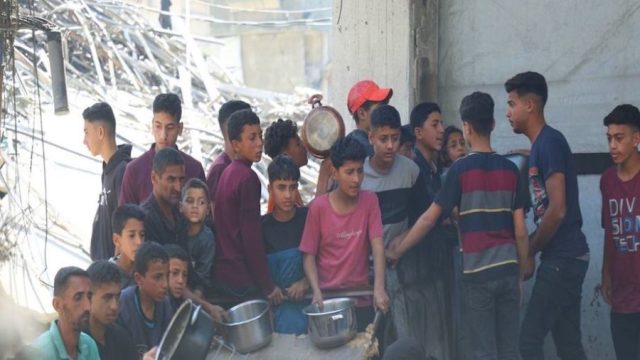UNITED NATIONS, Monday, July 14, 2025 (WNP): The United Nations Children’s Fund (UNICEF) has issued a stark appeal to Israeli authorities to urgently review their rules of engagement in Gaza following a deadly airstrike that killed seven children waiting for water at a distribution site in central Gaza on Sunday.
The strike, which also claimed the lives of four other civilians, has drawn widespread condemnation as the humanitarian crisis in the war-ravaged enclave continues to spiral.
In a statement posted on X (formerly Twitter), UNICEF Executive Director Catherine Russell said: “The Israeli authorities must urgently review the rules of engagement and ensure full compliance with international humanitarian law, notably the protection of civilians, including children.”
She pointed out that the latest incident comes just days after several women and children were killed while lining up for food and nutritional supplies.
Mounting crisis and risk of famine
The UN has consistently raised alarms about Palestinians being killed while seeking aid, amid a catastrophic breakdown in humanitarian access. According to UNICEF, the entire 2.1 million population of Gaza faces food insecurity, with famine still looming.
The situation is dire for children:
- 5,800+ children diagnosed with malnutrition in June alone
- 1,000+ suffering from severe acute malnutrition
- A continuing four-month upward trend in child hunger
Aid bottlenecks and health collapse
Despite the emergency, UNRWA, the UN agency for Palestine refugees, said that “truckloads of food and medicine” remain stuck in warehouses just outside Gaza, blocked from entry.
One UNRWA health worker was quoted as saying: “In the past, I only saw such cases of malnutrition in textbooks and documentaries. Today, I am treating them face to face.”
The UN Office for the Coordination of Humanitarian Affairs (OCHA) also criticized the inadequate aid flow, urging Israel to allow immediate large-scale humanitarian access via all possible corridors.
The health system is in tatters, OCHA noted. On Sunday, yet another doctor was reported killed, and while hospitals continue treating mass casualties, they do so under collapse conditions.
Mass displacement and escalating violence
Israel continues to issue displacement orders, with 86% of Gaza now either under such orders or located in militarized zones. On Friday, the Rimal area of Gaza City—home to 70,000 displaced people—was targeted for further evacuation.
Meanwhile, in the occupied West Bank, conditions are deteriorating rapidly. Speaking at a conference in Switzerland, UNRWA Commissioner-General Philippe Lazzarini warned:
“Annexation is well underway.” He described ongoing Israeli actions—including military operations and settler attacks—as a systematic campaign of forced displacement and a violation of international law.
Since January, Israeli operations in Tulkarm and Jenin—the most extensive in two decades—have displaced hundreds and destroyed infrastructure. OCHA recently reported that two Palestinian men, including a US citizen, were killed near Ramallah during a settler attack.
So far in 2025, over 700 settler attacks have been recorded, impacting more than 200 communities—mostly in Ramallah, Nablus, and Hebron.
Global calls for accountability and action
UN agencies continue to call for an end to the siege, protection of civilians, and full access for humanitarian aid.
UNRWA’s message was direct: “Let the UN, including UNRWA, do its lifesaving work. Starvation must stop.”
As the crisis in Gaza and the West Bank deepens, pressure is mounting on global actors to step in decisively and prevent further humanitarian catastrophe in what has become one of the world’s most pressing and tragic conflicts.




